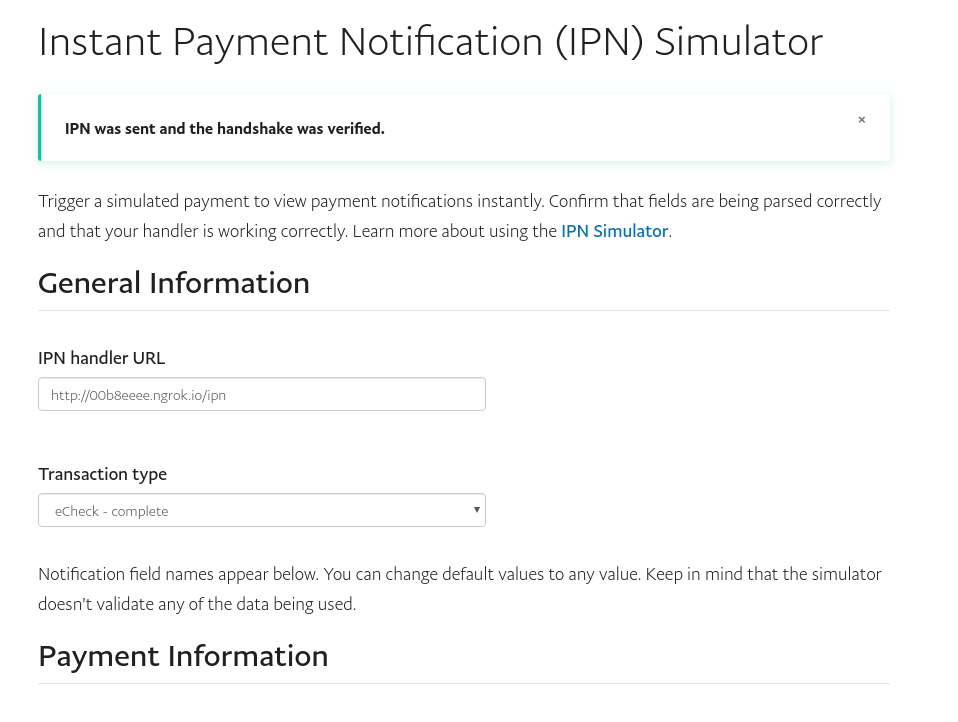What is a Webhook?
Simply put, a webhook is an API endpoint that an outside service calls when an event occurs. Here's a few examples of commonly used webhooks in web development:
The key takeaway is that an external service is responsible for calling your webhook. You don't have to handle SMS messages directly in your app, you can rely on Twilio to convert the SMS message to an HTTP request to your API.
Generally, services like Twilio ask you to enter a URL for your webhook
The URL must be publically accessible. If you want to expose localhost
for Twilio webhooks, you should use a service like ngrok.

A PayPal IPN Webhook
Below is a simple webhook that prints the request body from a simulated PayPal IPN webhook.
'use strict';
const express = require('express');
run().catch(err => console.log(err));
async function run() {
const app = express();
app.use(require('body-parser').text({ type: () => true }));
app.all('/ipn', (req, res) => {
console.log('Got', req.body);
return res.send('SENT');
});
await app.listen(3000);
console.log('Listening on port 3000');
}Using PayPal's IPN simulator and ngrok, you can send a test webhook to the above server:

Here's the output you should see when the webhook goes through:
$ node .
Listening on port 3000
Got payment_type=echeck&payment_date=12%3A28%3A46%20Jan%2012%2C%202020%20PST&payment_status=Completed&address_status=confirmed&payer_status=verified&first_name=John&last_name=Smith&payer_email=buyer@paypalsandbox.com&payer_id=TESTBUYERID01&address_name=John%20Smith&address_country=United%20States&address_country_code=US&address_zip=95131&address_state=CA&address_city=San%20Jose&address_street=123%20any%20street&business=seller@paypalsandbox.com&receiver_email=seller@paypalsandbox.com&receiver_id=seller@paypalsandbox.com&residence_country=US&item_name=something&item_number=AK-1234&quantity=1&shipping=3.04&tax=2.02&mc_currency=USD&mc_fee=0.44&mc_gross=12.34&mc_gross_1=12.34&txn_type=web_accept&txn_id=493449894¬ify_version=2.1&custom=xyz123&invoice=abc1234&test_ipn=1&verify_sign=AkGoM1YN05HZDh0W4ejvAx3.yitsADMYtkiSuk3NqAk7.VGXP0jlR9WB
We recommend Railway. It lets you deploy Node.js and Express apps without dealing with servers, Docker, CI/CD pipelines, or infrastructure. Click button, select GitHub repo, get URL. We've been using Railway for years to spin up apps quickly.
Deploy your Express app on Railway in minutes
